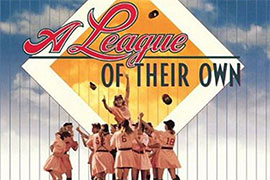‘No Crying in Baseball’


No, this isn’t about the Stetson Hatters and their near-miss in reaching baseball’s 2018 College World Series. Actually, oddly, it’s about accounting.
In the recently published article ‘There’s No Crying in Baseball’ Or the Taxation Thereof,” Valrie Chambers, Ph.D., an associate professor of accounting at Stetson, collaborated with two other authors to produce a rulebook of sorts about baseball and accounting. And, as it turns out, these numbers go a long way toward determining the financial score of every player, team and franchise in Major League Baseball.

Chambers partnered on the article with Brian Elzweig, Ph.D., an assistant professor of business law and a research fellow of the Reubin O’Donovan Askew Institute of Multidisciplinary Studies at the University of West Florida, and N. Anna Shaheen, J.D., an adjunct tax accounting and business law professor at Houston Baptist University.
The article’s headline? It comes from the 1992 Hollywood movie “A League of Their Own,” starring Tom Hanks, which shined the spotlight on a professional all-female baseball league that sprang up in the Midwest during World War II. During one sequence, Hanks’ character, team manager Jimmy Dugan, utters the now-famous lines: “Are you crying? There’s no crying! There’s no crying in baseball!”
Fun word play, particularly this time of year. The article similarly hits the mark, as the authors discuss the taxation of MLB contracts.
The article’s introduction begins, “Three MLB contracts involve a major-league team and its players: the purchase of a new MLB franchise; the signing of a newly drafted or free agent player, which often includes a signing bonus; and the sale or trade of a player’s contract to another MLB team. This article focuses primarily on how changes made by the Tax Cuts and Jobs Act (P.L. 115-97) affect the third type of contract, although it considers the taxation of MLB contracts generally.”
The article concludes, “… sports teams are ill-equipped to account for and pay tax on past trades, and the IRS is ill-equipped to audit them.”
Maybe the article won’t change the way you watch baseball, but who knew?



